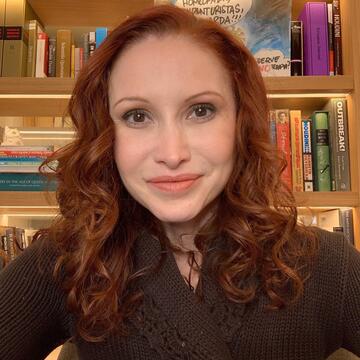
Natalia Pasternak Taschner
Adjunct Senior Research Scholar in the Center for Science and Society; Adjunct Professor of International and Public Affairs

Personal Details
Natalia Pasternak is a microbiologist, with a PhD and post-doctorate in Microbiology, in the field of Bacterial Genetics at the University of São Paulo, Brazil. She is the former director in Brazil of the international festival of scientific communication “Pint of Science” (UK), columnist for the Brazilian national newspaper "O Globo", for The Skeptic magazine (UK), and Medscape (WebMD). She also hosts two weekly radio shows “The hour of Science” at Brazil's CBN national radio station. She contributes as a visiting professor at the Public Administration School at Fundação Getúlio Vargas, São Paulo, and as a research collaborator at the University of São Paulo. She is currently the publisher of Question of Science magazine and president of Question of Science Institute, the first Brazilian Institute for the promotion of skepticism and rational thinking. She is the first Brazilian to become a fellow of the Committee for Skeptical Inquiry (CSI) – USA, in recognition of outstanding work in the promotion of science, skepticism and critical thinking. In 2020, and again in 2021, she was chosen Brazilian of the year in Science by IstoE Magazine. She was chosen Personality of the year by the Group of Latin America Daily Newspapers, and received the Ockham Award from The Skeptic magazine, for the promotion of skepticism and rational thinking in Brazil.
She has written two books on popularization of science, Science in our daily lives, which won Brazil's National Literature prize for best science book in 2021 (Prêmio Jabuti), and Against Reality: science denialism, its causes and consequences. She was the only Brazilian listed by BBC as the 100 most influential women of 2021, and she is currently an Adjunct Senior Research Scholar at Columbia University, at the Center for Science and Society, by invitation of Professor Stuart Firestein. Her research focuses on how to improve science communication and combat denialism and misinformation, bringing scientific thinking for future policy makers, and helping to create an international collaboration for science-based global policies.